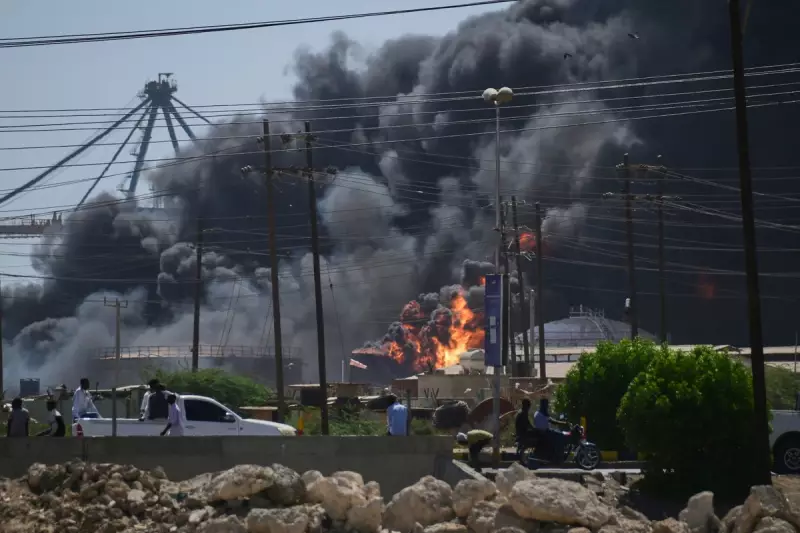
A senior adviser to Sudan's paramilitary Rapid Support Forces (RSF) has issued a stark warning, stating that recent comments from US Secretary of State Marco Rubio are undermining international efforts to secure a humanitarian ceasefire in the country's devastating civil war.
Diplomatic Tensions Escalate
Elbasha Tibeig, an adviser to RSF leader Mohammed Hamdan Dagalo, publicly dismissed Rubio's statements as an "unsuccessful step" that fails to support global peace initiatives. The criticism came after Rubio declared at a press conference that the United States is applying pressure on nations providing military support to the RSF.
Secretary Rubio expressed deep concern over the dire humanitarian situation in Sudan, emphasising that "something needs to be done" to sever the flow of weapons and other assistance reaching the paramilitary group. Tibeig countered these claims on his X social media account, suggesting that Rubio's remarks could be perceived as a "political and diplomatic victory" by the rival Sudanese Armed Forces.
Humanitarian Catastrophe Deepens
The war, which erupted in 2023 between the RSF and the Sudanese military, has created one of the world's most severe humanitarian disasters. According to the World Health Organization, the conflict has killed at least 40,000 people, though aid groups fear the true death toll is far higher. A staggering 12 million people have been displaced from their homes.
The recent RSF capture of North Darfur's capital, el-Fasher, resulted in hundreds of deaths and forced approximately 90,000 people to flee reported atrocities, according to the International Organization for Migration. These displaced civilians face perilous journeys through unsafe routes without access to food, water, or medical assistance.
International Arms Flow Controversy
Tibeig accused the US administration of bias, urging the international community to instead focus on stopping weapons flowing from Iran and Turkey to the Sudanese army's allied militias. This statement highlights the complex international dimensions of the conflict, where both sides are believed to receive foreign support.
US intelligence assessments have repeatedly indicated that the United Arab Emirates, a close US ally, has been sending weapons to the RSF, though the UAE consistently denies these allegations. When questioned, Rubio confirmed that the US government knows which countries are involved in supplying the RSF and is applying "pressure to the relevant parties" at the highest levels, though he declined to name specific nations.
Meanwhile, the Institute for the Study of War reports that Egypt likely provided Sudan's armed forces with a batch of fighter jets in March, along with Turkish drones, despite Egypt's denials of weapons transfers. Egyptian Foreign Minister Badr Abdelatty recently reaffirmed his country's unequivocal support for Sudan's armed forces after meeting with army chief Abdel-Fattah Burhan.
UN Secretary-General António Guterres added his voice to the growing international concern on Thursday, stating that the flow of weapons and fighters from external parties must stop and urging warring sides to take swift, tangible steps toward a settlement.
As diplomatic efforts continue, the fighting has intensified around the strategic city of Babanusa in West Kordofan province, which houses the headquarters of the army's last infantry division in the region. The RSF had vowed to capture the city within hours, but the Sudanese army reportedly thwarted their attacks on Thursday, according to a military official speaking on condition of anonymity.





